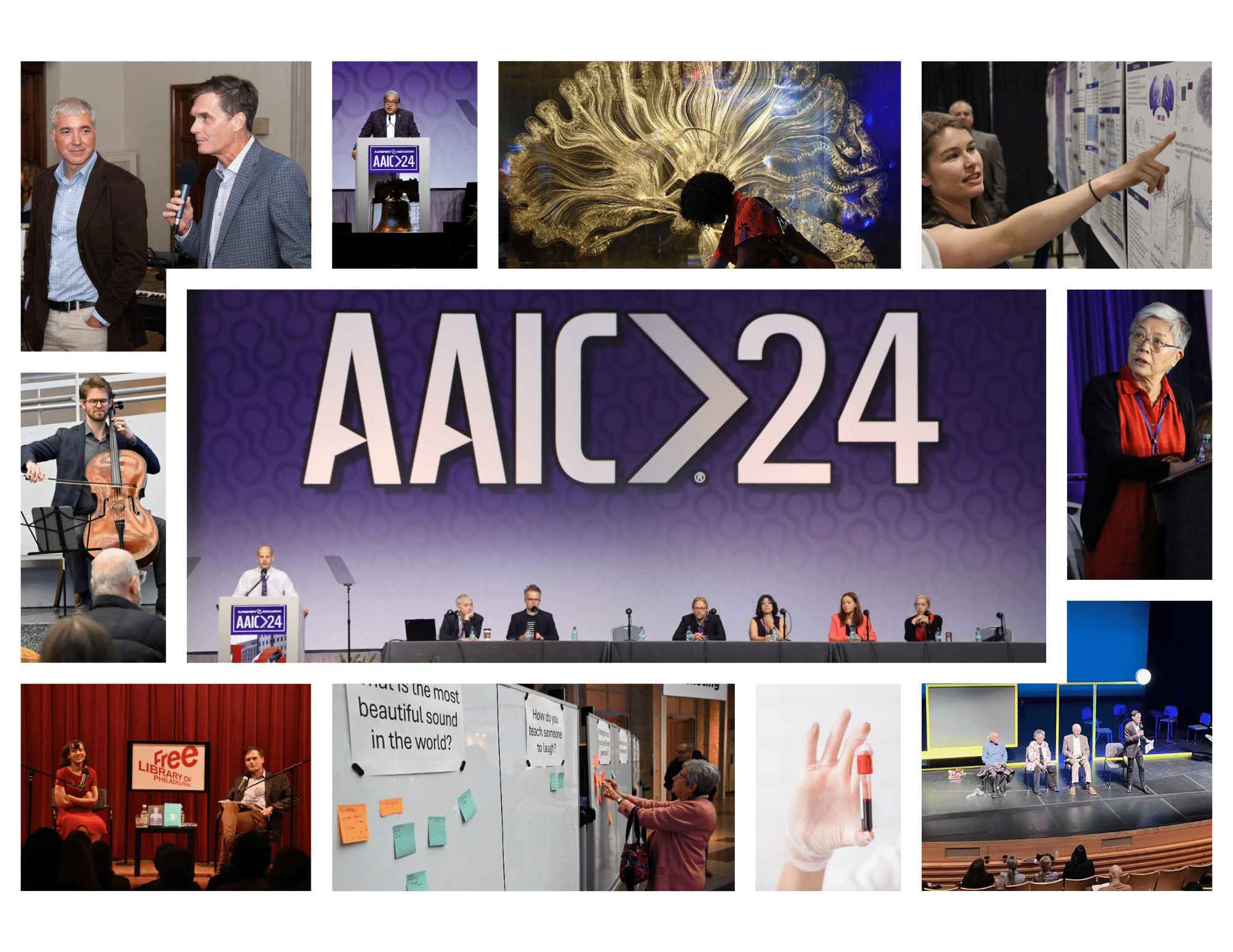It has been yet another groundbreaking year for research in Alzheimer’s disease and related dementias (ADRDs). At the Penn Memory Center (PMC), we asked team members to reflect on the most impactful initiatives and publications from 2024. 
David Wolk, MD, PMC Co-Director
“More and more of what we’re learning is that a lot of what drives symptoms is not just plaques and tangles—which are the main two pathologies of Alzheimer’s disease—but a variety of other factors. While we’ve developed more tools to measure some aspects of brain changes associated with aging, I think a real drive in the coming years is this: how can we decompose or parcellate different aspects of what’s driving cognitive symptoms in individuals? This will help us determine the most effective targets for treatment.”
Edward Lee, MD, PhD, Associate Director of the Penn Alzheimer’s Disease Research Center
“I’m excited about the work we’re doing here at Penn, where we are funding several groups developing novel therapies. While it’s incredible to have anti-amyloid therapies, we’re also exploring RNA therapies, cellular therapies, gene therapies, and small molecules.”
Morgann Adams, MS, PMC Outreach Manager
“This year, the Penn Memory Center had the pleasure of helping plan the inaugural Arts on the Mind Festival. Working with local community organizations to bring various forms of art and aging brain health together was such a unique and fun experience. As we look forward to 2025, I am excited to continue prioritizing bringing engaging art opportunities to diverse communities.”
To learn more about the Arts on the Mind Festival, please click here.
Victor Ekuta, MD, PMC Clark Scholar
“In my opinion, the most impactful emerging topic of 2024 centers on blood testing for our patients. Traditional Alzheimer’s disease (AD) diagnostic procedures, such as PET scans and spinal taps, are costly and invasive. This can hinder the ability to diagnose AD, especially among historically underrepresented populations. The p-tau217 blood test offers a simpler and more affordable alternative, which ultimately could facilitate earlier and more accurate diagnosis across diverse populations.”
To learn more, please click here.
Jake Johnson, Age of Aging Podcast Producer & Host
“Research that stands out to me from this year is a study that Dr. Edward Lee discussed on the “Building Trust” episode of the Age of Aging. In this study, Dr. Lee and colleagues explored the role of environmental factors in cognitive scores later in life and physical signs of aging and disease in the brain post-mortem. The study utilized the Area Deprivation Index (ADI) to examine how community-level factors—such as income levels, crime, and the availability of grocery stores—impacted brain health. The results showed that a lower ADI correlated with lower cognitive scores but less physical changes in the brain. Dr. Lee suggested that increased social stressors in your environment can increase your risk for developing dementia and diseases like Alzheimer’s later in life. I found this study fascinating because so often we think about how the individual choices we make impact the brain and mind. However, Dr. Lee’s work highlights how systemic social issues influence health outcomes. This conclusion is difficult to grapple with as changes can’t be easily implemented on an individual level. It’s important, though, to understand all of the ways broader social reform can change people’s lives for the better as well as just how damaging social inequality is to the mind.”
To listen to this podcast episode, please click here.
Meghan McCarthy, BS, PMC Staff Writer
“Several initiatives we covered reflected the growing intersection of technology and dementia. As the focus of several PennAITech and Alzheimer’s Association International Conference (AAIC) highlights, 2024 truly was a year of researchers harnessing the power of technology to advance outcomes. Specifically, Dr. Emma Rhodes’ work on empathy loss and heart rate variability stood out. Dr. Rhodes and her team found that people with an increase in heart rate showed greater empathy loss while enrolled in her study. This integration of biometric data and behavioral outcomes reflects the power of wearable devices within research.”
To read more, please click here.
Shana Stites, PhD, PsyD, MA, MS, Clinical Psychologist & PMC Researcher
“Published in August, one paper highlighted that older adults living in subsidized housing have higher rates of hospitalization and nursing facility utilization compared to those in the general community. It promotes housing-based interventions to support aging in place and mitigate risks for ADRD patients. This paper is notable. It talks about disproportionate prevalence of dementia in this group and dementia as a risk factor for health care utilization.”
To learn more, please click here.